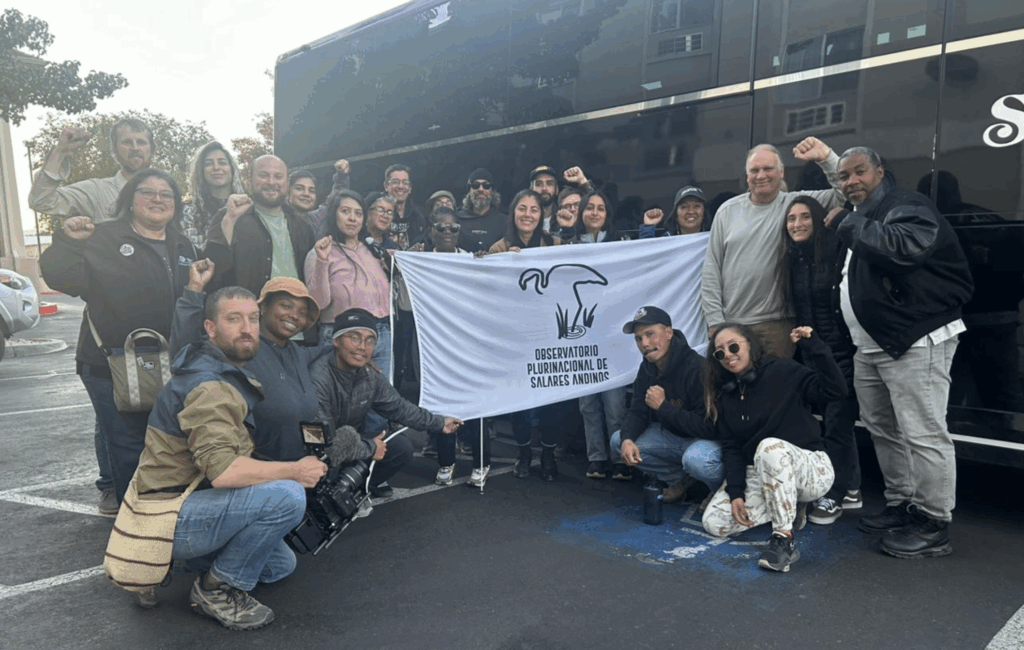Supply Chain Solidarity: Lessons from the Lithium Frontlines
A film about a journey to learn about the impacts of EV batteries and the search for solutions.
Workers and organizers, representing different parts of the transportation supply chain, journey across Nevada to learn first-hand about the impacts of lithium mining for electric vehicle batteries.
Over three days and 600-plus miles, this group wrestles with one central question: what if the transition to clean transportation was centered on the demands of those fighting for justice throughout the supply chain?
Whether you’re a mining justice organizer or an auto worker, a car user or a transit rider, a bus mechanic or an Amazon delivery driver, you are affected by current transitions in the transportation system and you should see this film.
Take Action
After meeting in Nevada, organizers collaborated to create these Solidarity Principles for the Transportation Supply Chain and the Energy Transition. Our goal is to grow the cohort from its original 25 to many thousands of workers, organizers, and community members of all kinds who are willing to stand strong together and fight for justice.
You can join the movement by learning about and signing on to the Solidarity Principles for the Transportation Supply Chain and the Energy Transition.
Solidarity with the Global South
This trip and film were created in solidarity with organizers in the Global South who are fighting for justice in their communities and ecosystems that are also under threat from lithium mining, including the Observatorio Plurinacional de Salares Andinos (OPSAL) which works to protect the Atacama salt flats in Chile, Argentina, and Bolivia. Exporting the impacts of extraction to other countries is not a viable solution.



